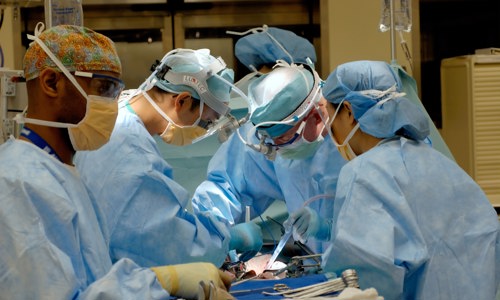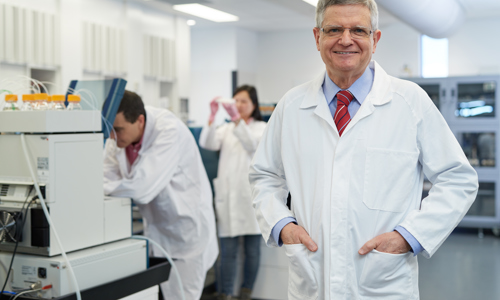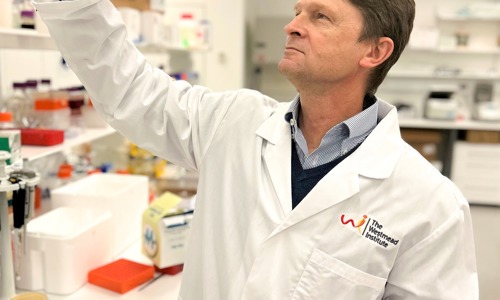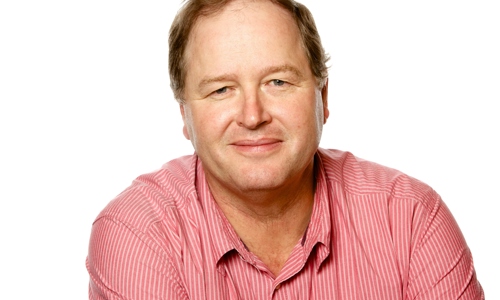The top five innovative medical opportunities happening at Westmead

Welcome to Westmead Health Precinct, a vital cog in Sydney’s emerging Westmead Health and Innovation District. With support from the NSW Government, this precinct is becoming a global epicentre for groundbreaking discoveries and advanced innovative medical opportunities. Here, we explore the five key medical opportunities and scientific breakthroughs Westmead is focusing on.
The five key innovation opportunities at Westmead
- Advanced therapeutics. Healthcare is evolving thanks to advanced therapeutics like gene therapy. This field unites science and clinical medicine, covering the entire journey from fundamental research to clinical trials. With transformative potential, advanced therapeutics promises to revolutionise medical treatment.
- Translational cancer. Translational cancer research programs at Westmead make the most of their research capabilities, connecting the dots between groundbreaking research and real-life applications in clinics. This approach, which includes the groundbreaking ProCan program, brings great hope in the fight against cancer.
- Infectious diseases, immunology, and vaccinology. Dedicated researchers at Westmead, such as the world-leading scientists at Phage Australia, are committed to tackling infectious diseases. Their efforts extend beyond the lab, translating research into tangible solutions safeguarding public health and wellbeing.
- Clinical trials. Westmead leads NSW’s clinical trials activity. With up to 1,000 ongoing trials and over 100 industry partnerships, patients gain access to cutting-edge treatments spanning all life stages.
- Digital health and big data. Digital health and big data stand at the forefront of healthcare advancement. By leveraging data mining, analytics, and modelling, these initiatives yield crucial insights into disease classification, diagnosis, and prognosis. The vast possibilities for improving patient care are pushing healthcare into an era of unparalleled knowledge and progress.
Big breakthroughs: three Westmead projects the world is watching
Within these key opportunities are three groundbreaking projects putting Westmead on the map as a global health innovator.
 Professor Roger Reddel, Director of the Children’s Medical Research Institute, Co-Director of ProCan, and Head of the Cancer Research Unit
Professor Roger Reddel, Director of the Children’s Medical Research Institute, Co-Director of ProCan, and Head of the Cancer Research Unit
ProCan: a revolutionary cancer research program
ProCan is a major international research program that aims to document the proteome of human cancer. By examining thousands of different proteins present in cancer samples, ProCan aims to achieve unprecedented insights into cancer development, progression, and personalised treatment strategies.
Professor Roger Reddel, Director of the Children’s Medical Research Institute, Co-Director of ProCan, and Head of the Cancer Research Unit, says it’s a world-first initiative that positions Westmead as a leader in cancer research.
“Until now, it hasn’t been technically possible to deliver lots of information about proteins to cancer clinicians. So, we’ve set about building a huge database of protein information and clinical information that will allow us to use advanced computational techniques to predict how an individual cancer is going to behave."
Professor Roger Reddel
Director of the Children’s Medical Research Institute, Co-Director of ProCan, and Head of the Cancer Research Unit
“The main objective of all of this is to be able to predict for each individual cancer patient what will be the most effective treatment and just as importantly, what are the treatments which will be ineffective for that cancer patient.”
 Professor Jon Iredell is the Founder and Director of Phage Australia, Professor of Medicine and Microbiology at The Westmead Institute for Medical Research, and Director of the Centre for Infectious Disease and Microbiology
Professor Jon Iredell is the Founder and Director of Phage Australia, Professor of Medicine and Microbiology at The Westmead Institute for Medical Research, and Director of the Centre for Infectious Disease and Microbiology
Phage Therapy: a potential solution to antimicrobial resistance
With antimicrobial resistance expected to be the number one killer of humans within a generation, phage therapy emerges as a promising solution. Phages, short for bacteriophages, are tiny viruses that kill bacteria. Phage therapy uses these viruses to treat bacterial infections, its origins dating back over 100 years.
Headquartered at Westmead Health Precinct, Phage Australia is a national network of phage researchers aiming to professionalise phage therapy and offer it as a viable alternative to antibiotic-resistant infections. Phage Australia’s Westmead lab is the first facility in the country to manufacture phages.
Professor Jon Iredell is the Founder and Director of Phage Australia, Professor of Medicine and Microbiology at The Westmead Institute for Medical Research, and Director of the Centre for Infectious Disease and Microbiology. He says Australia is the only country in the world with a national phage network, and the fact that phage experts from around the world come to Westmead to study Phage Australia’s work, speaks to Westmead’s standing as a medical research powerhouse.
“So far, phages are suitable for everything that antibiotics are suitable for, and they can even be given with antibiotics, as they often make them more powerful."
Professor Jon Iredell
Founder and Director of Phage Australia, Professor of Medicine and Microbiology at The Westmead Institute for Medical Research, and Director of the Centre for Infectious Disease and Microbiology
“In the future, the full potential of phage therapy could be such that you visit the doctor with a bacterial infection, and instead of receiving antibiotics, you are prescribed a phage.”
Professor Jon Iredell
Founder and Director of Phage Australia, Professor of Medicine and Microbiology at The Westmead Institute for Medical Research, and Director of the Centre for Infectious Disease and Microbiology
 Professor Ian Alexander - professor in the Paediatrics and Molecular Medicine Disciplines of Child and Adolescent Health and Genetic Medicine at the Children’s Hospital at Westmead
Professor Ian Alexander - professor in the Paediatrics and Molecular Medicine Disciplines of Child and Adolescent Health and Genetic Medicine at the Children’s Hospital at Westmead
Viral Vector: advancing gene therapies
Viral vectors are modified viruses used in gene therapy to deliver therapeutic genes into cells and replace faulty genes that cause disease. The global viral vector market is estimated to grow to US$2.6 billion by the end of 2026 and Westmead’s commitment to this area of medical innovation is clear. Plans are in place to build a commercial-scale viral vector manufacturing facility with a 550-litre capacity facility.
The new facility draws on the expertise of globally renowned expert, Professor Ian Alexander. A leading professor in the Paediatrics and Molecular Medicine Disciplines of Child and Adolescent Health and Genetic Medicine at the Children’s Hospital at Westmead, he could be based anywhere in the world. His choice is Westmead.
“We’ve got access to a highly competitive clinical and research environment that meets an elite global standard. Westmead is so well connected internationally – we’re not only developing world-class therapeutics, we’re making sure that the best therapeutics on the planet will be available to Australians at the earliest opportunity.”
Professor Ian Alexander
Paediatrics and Molecular Medicine Disciplines of Child and Adolescent Health and Genetic Medicine at the Children’s Hospital at Westmead
This prowess cements Westmead’s standing as a global destination for gene therapy research and clinical applications.
“We’ve got an excellent clinical environment with the adults and the paediatric hospital sitting next door to a medical research institute,” says Professor Alexander. “This powerful and necessary marriage between excellent science and clinical care is crucial when it comes to the challenge of developing new therapies, which invariably start experimentally in a laboratory.”
Shaping the future of healthcare
Westmead Health Precinct’s remarkable achievements have thrust it into the global spotlight and laid the foundation for further medical breakthroughs – contributing to Sydney’s wider health, life science and medtech attributes . As the world eagerly watches Westmead’s next moves, it stands tall as a testament to collaboration, innovation, and the relentless pursuit of advancing human health.


